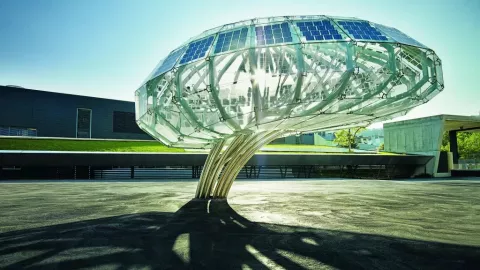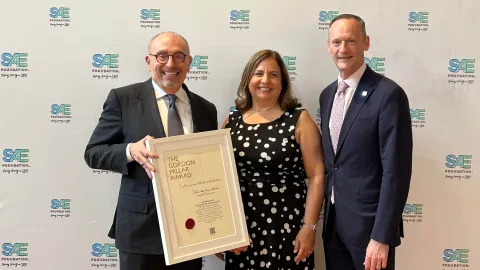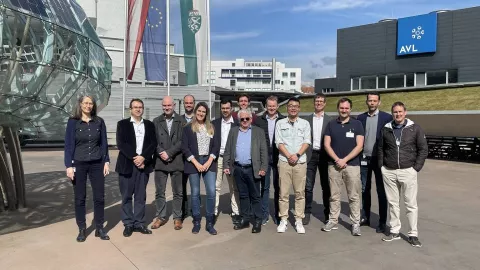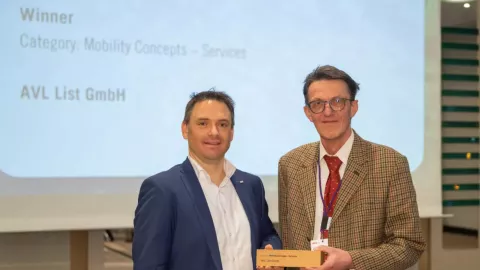Competition of Powertrain Systems to Minimize CO₂ and Emissions 2020/2025

High-tech company AVL hosted the 29th edition of its trend conference “Engine & Environment” in Graz. As powertrain development is experiencing a phase of phenomenal dynamic change. The theme of this year’s conference was „Competition of Powertrain Systems to Minimize CO2 and Emissions 2020/2025“. Speeches on the subject were held by top-ranking representatives of vehicle manufacturers including Mitsuo Hitomi (Mazda Motor Corporation), Gerald Killmann (Toyota Motor Europe), Patrice Marez (PSA Group), R. Velusamy (Mahindra & Mahindra Ltd), Brian Cooper (Jaguar Land Rover) and Wolfgang Demmelbauer-Ebner (Volkswagen AG).
It is often assumed that the next five years will see far more significant technological change than the previous 30 years. The increasing reduction in fuel consumption and emissions levels, particularly in the passenger car sector, has forced the intensive development of electrified powertrains. Real Driving Emissions (RDE) legislation boosts the competition between powertrain systems even further and is widely acknowledged to promote the combustion engine alongside electrification. Together with hybridization, they enable the penetration of low fuel consumption and „zero-impact emission“ areas that were considered unattainable for the combustion engine a few years ago. Not only do driver-assistance systems up to completely autonomous driving have an enormous potential to increase traffic safety and transport efficiency, they also enable further operational improvements in the powertrain.
Recognize and Use the Strengths of the Other Technology
The battle of the powertrains will see the emergence of new synergetic effects as one-time opponents become new allies who recognize and jointly utilize the strengths of each other’s technology. The overall theme of the conference, which was held in German and English using simultaneous translation, were discussed in detail with presentations covering topics from legislation to concrete solutions and technologies.
In 1988 AVL hosted the Engine & Environment conference for the first time to provide an independent, neutral and international platform to promote the interdisciplinary discussion of key aspects in engine and vehicle technology in a wider social context – environmental and energy issues as well as legal framework conditions.
AVL is a world-leading technology company specialising in development, simulation and testing in the automotive industry and other sectors such as rail, marine and energy. Through extensive research, AVL delivers concepts, technology solutions, methodologies and development tools for sustainable, safe and advanced mobility and beyond.
AVL supports international partners and customers in sustainable and digital transformation, with a focus on electrification, software, AI and automation. AVL also supports companies in energy-intensive sectors on their way to green and efficient energy generation and supply.
For more information: www.avl.com


- EN,

- EN,

- EN,
Stay up-to-date as a journalist with our latest press releases concerning company updates, research projects, our latest developments, and more.
Download our fact sheet to get a comprehensive overview about what we do as well as our latest company figures.
Get in touch with our Press-Team
For all press and media enquires please email: